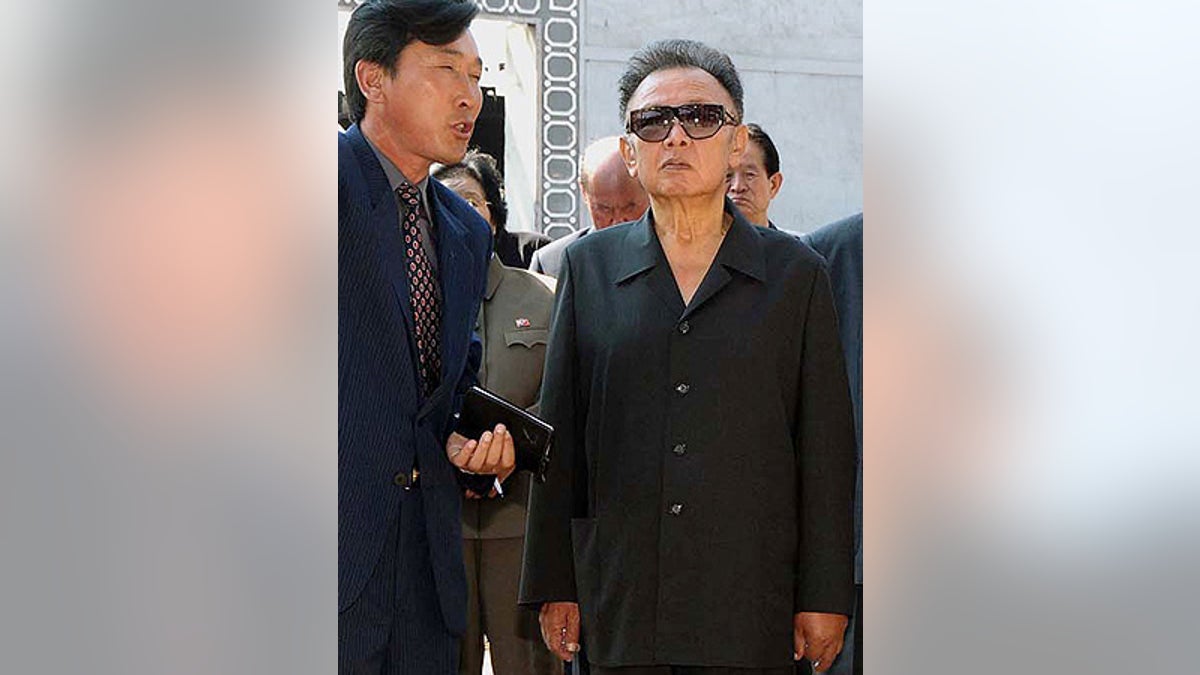
Mar. 31: South Korean soldiers take part in joint military exercises with the U.S. in preparation for a North Korean rocket launch. (AP/KCNA via KNS)
SEOUL, South Korea – South Korea was bracing for a possible third nuclear test by North Korea, which a U.S. official said was likely despite looming U.N. sanctions on the communist state for its previous test in May.
Given the North's track record of provocative behavior and defiance of the United Nations, "common sense" would dictate that it is preparing for another nuclear test, South Korean Defense Ministry spokesman Won Tae-jae told reporters Friday.
He said the test was "probably possible."
However, South Korea's Yonhap news agency quoted an unidentified intelligence official as saying there was no imminent indication that Pyongyang was restoring a test site where the second underground blast took place on May 25.
The conflicting reports and uncertainty about Pyongyang's plans reflect the unpredictable and mysterious nature of the reclusive communist regime, which has defied the international community to push ahead with its military program.
It describes the nuclear program as a deterrent against possible U.S. attacks. Washington says it has no such intention and expresses fears that Pyongyang is trying to sell its nuclear technology to other rogue nations.
"We are always bracing for any danger and any kind of provocation," Won said. "Recently, we have braced ourselves against all predictable possibilities regarding nuclear or missile situations."
The comments came after a U.S. government official in Washington said late Thursday that Pyongyang could be preparing for a third nuclear test. The official, who spoke on condition of anonymity in order to discuss the unreleased information, would not provide details regarding the assessment.
A third nuclear test would likely alienate the North further from its allies China and Russia, who have agreed with Western nations on imposing new U.N. sanctions to curb Pyongyang's weapons exports and financial dealings. They would also allow inspections of suspect cargo in ports and on the high seas.
The U.N. Security Council is expected to approve a draft of the sanctions document later Friday. North Korea has threatened to retaliate if the sanctions are approved.
North Korea — which conducted its first underground nuclear test in 2006 — has been escalating the standoff with the United States and South Korea in recent months as its ailing leader Kim Jong Il reportedly prepares to hand over power to his third and youngest son Jong Un.
Its May 25 test was followed by a barrage of missile launches. The missiles are able to reach Japan, another pro-U.S. country at odds with North Korea.
North Korea has given Jong Un the title "Renowned Comrade," South Korea's mass-circulation JoongAng Ilbo newspaper said, citing this week's meeting in Seoul between South Korean and the U.S. intelligence authorities.
In Tokyo, Foreign Minister Hirofumi Nakasone told reporters Friday that he was aware of the U.S. reports.
"We must work hard so that North Korea will not take such action. I don't want such a thing to happen. But if, by chance, it happens, we must take a necessary response," he said without elaborating.
Japan's Defense Minister Yasukazu Hamada told a news conference that the government is "in close contact with the U.S."
"We are carefully monitoring movements in North Korea," he said without elaborating.
